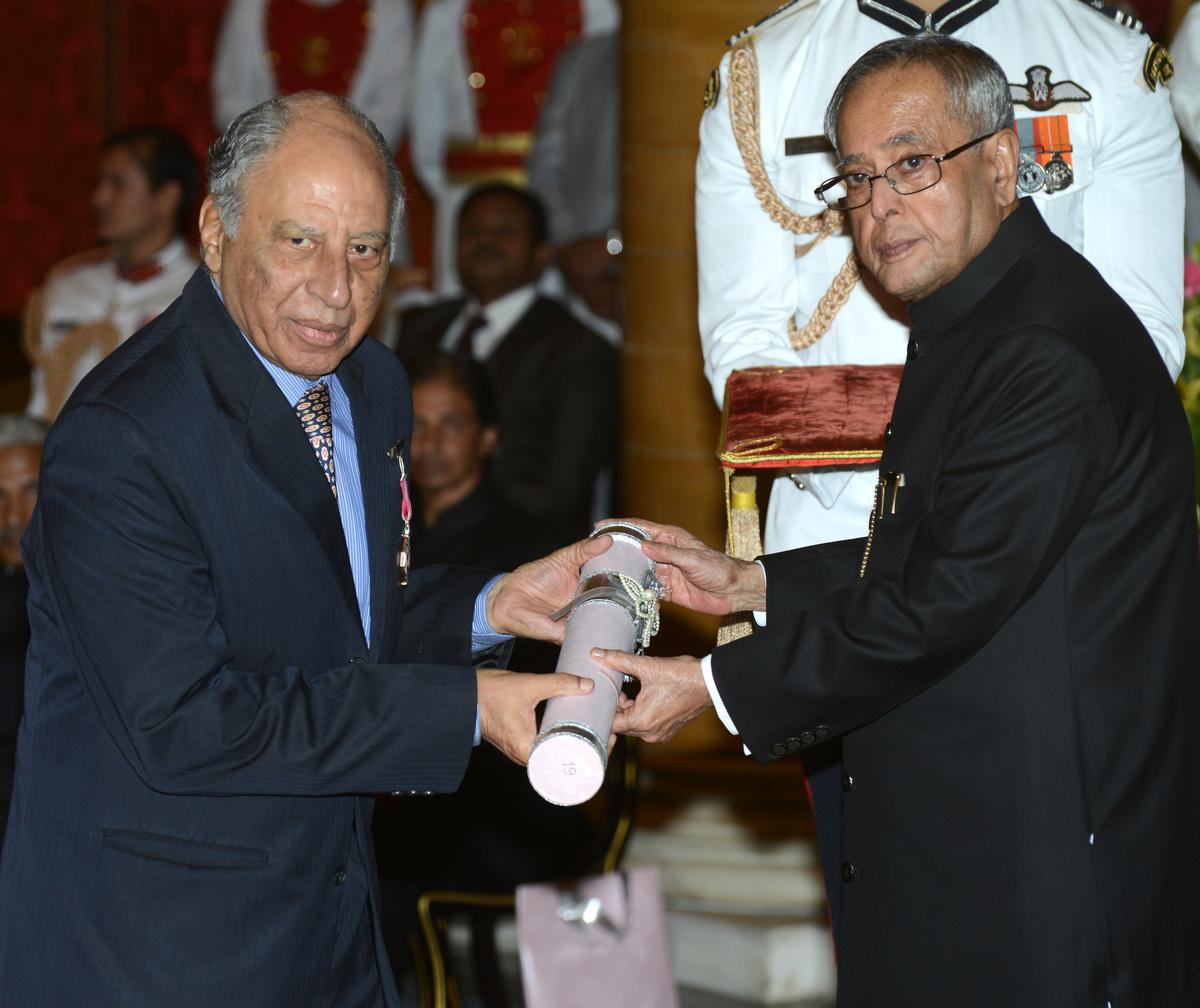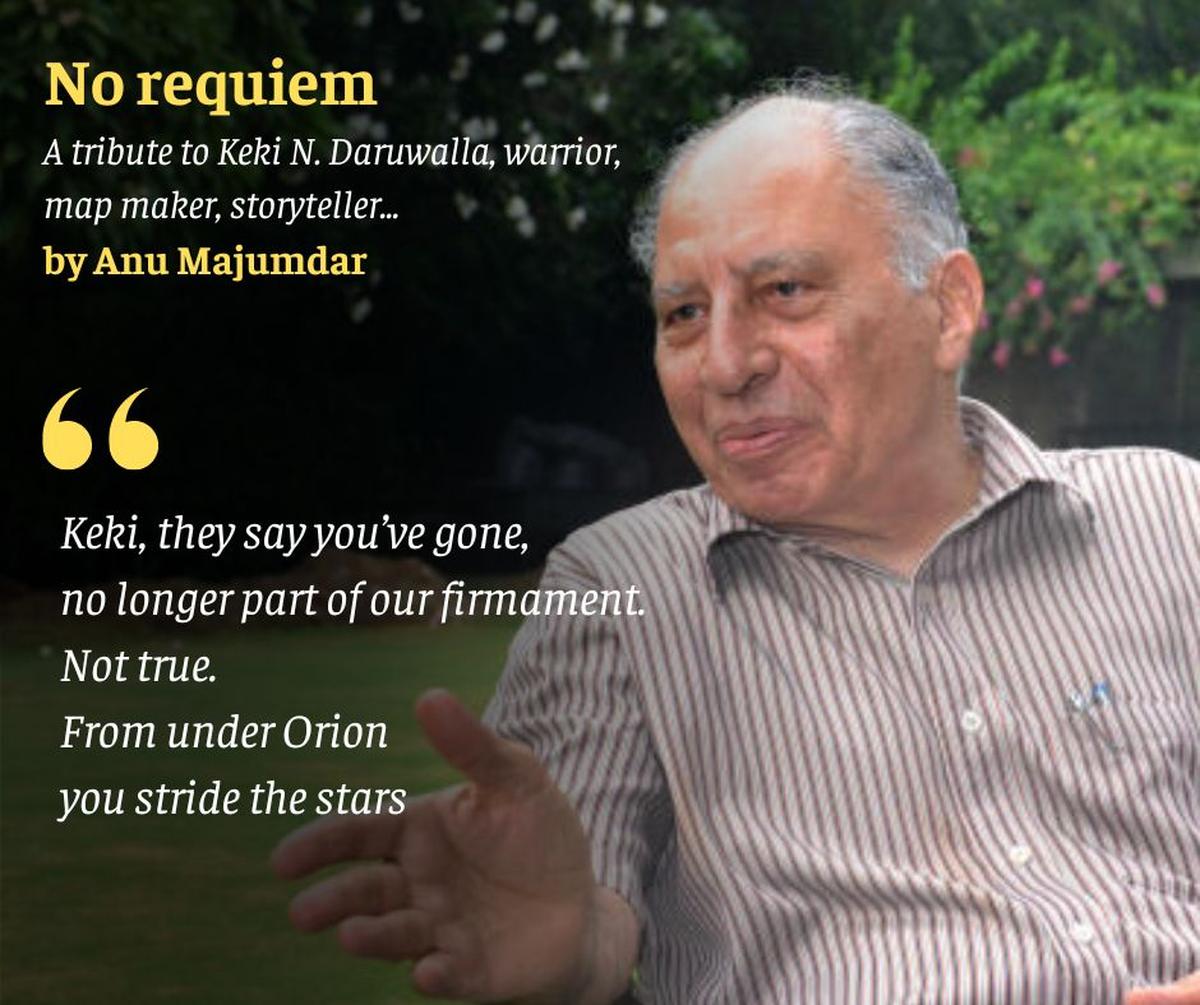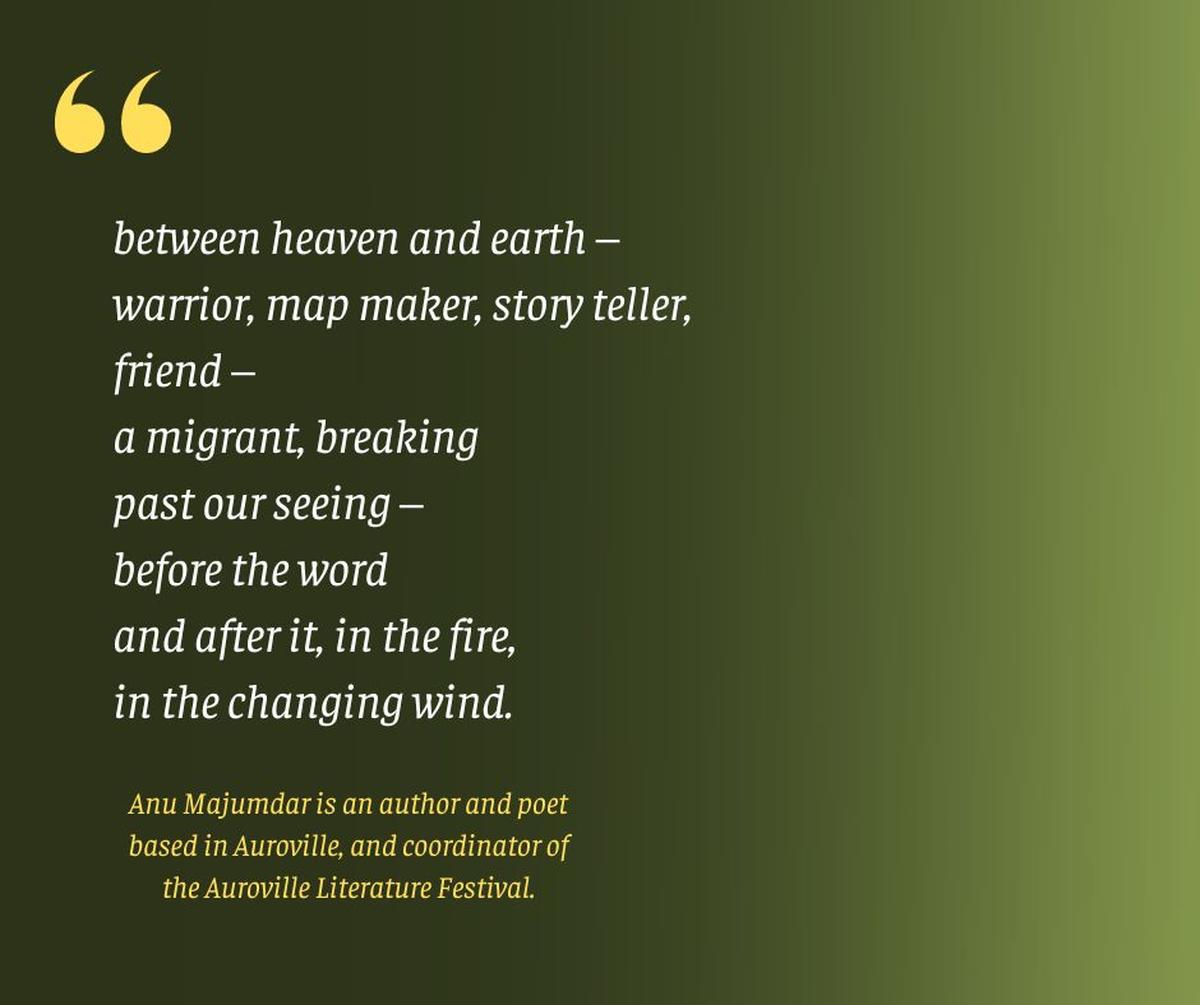W.H. Auden’s poem ‘In Memory of W.B. Yeats’ begins thus:
Time that is intolerant
Of the brave and the innocent
And indifferent in a week
To a beautiful physique
Worships language and forgives
Everyone by whom it lives…
Keki N. Daruwalla knew the weight and value of words, and used them carefully and consistently, leaving behind a literary legacy that spanned 15 collections of poetry and 10 works of short and long fiction. His poetry and prose had range and clarity of vision, with an underlying world view and belief system that was robust yet deeply philosophical.
My friendship with Keki spanned some 40 years. I knew of him before that, as a colleague of my father from the Indian Police Service. Both he and my father were associated with the intelligence services and with the Research & Analysis Wing.
When my debut novel Paro was published in 1984, it got flattering international attention and unexpected hostility from the Indian literary establishment. That was the year Keki received the Sahitya Akademi award for his collection of poetry, The Keeper of the Dead. Keki took it upon himself to defend me and wrote a long, thoughtful and fair-minded review in The Indian Express. This act of generosity won my gratitude and cemented what was to become a precious friendship.
Penning stories until the end
Let us examine the legacy: the poems, the novels, the short stories, the memories. Keki’s first collection of verse, Under Orion, was published in 1970 by P. Lal. This was followed by 14 collections of poems, the most recent of which was Landfall, published in 2022 by Speaking Tiger.
He excelled at short stories, and there are seven outstanding collections to show for it. The most recent of them, titled Going, was published in 2022. It opens with ‘The Brahmaputra Trilogy’, a tender yet savage story of race, identity, and the remains of the British Raj.

Keki N. Daruwalla receives the Padma Shri, the fourth highest civilian award in India, from President Pranab Mukherjee in 2014.
| Photo Credit:
Sandeep Saxena
The three outstanding novels include For Pepper and Christ (2009), Ancestral Affairs (2015) and Swerving to Solitude (2018).
I believe that Keki’s prose, his novels and short stories, were as important to his writing as the poetry. His understanding of structure, his deceptively simple style, his grasp of society and the larger polity, give the novels a vast scope of reference and document the recent history of India and the region.
In 2022, Keki had shared with me a version of the manuscript of what was possibly his last novel. Titled Alexandria and The Fallen Priest, it was an ambitious and magnificent work. The narrative voice was vibrant and commanding. He later sat down to script further corrections, and to retrieve bits that had gone missing. The work has not been published; I hope it will see the light of day and receive the acclaim it deserves.
He had also told me about another new work of fiction he had embarked upon, set in ancient India. He remained regular in his output of poetry, often laced with contemporary observations, which he took to sharing on social media. Tireless in his dedication to the discipline of writing, he paced himself to contemplate and comment.


Inspiring young talent
Keki stayed young through his engagement and interaction with a new generation of poets. He was generous in giving introductions and blurbs for their publications. The human legacy he leaves behind is the kindness, affection and belief he imparted to aspiring writers.
So many people have shared memories with me, of laughter and joy and generosity. I remember an evening perhaps two years ago when author Devapriya Roy and I visited him at his house in Delhi’s Kailash Apartments. We spoke about his book, Going. He then took out yellowed photographs and we shared fading memories, the nostalgia lightened by the occasional acerbic remark that was so much a part of Keki’s expressive vocabulary. He brought out a bottle of fine cognac that he had kept aside for a special occasion. We forgot our worries and preoccupations and indulged in the joys of friendship and healing laughter. That is the memory of Keki I would like to keep in my heart.
Keki’s strong grounding in his Zoroastrian faith and legacy, combined with his deep knowledge of India and the world, made him a truly cosmopolitan person. He had served with the police and the intelligence agencies, been a member of the National Commission for Minorities, and understood the contradictions and dilemmas of the ‘real’ world. He had faced the tragedy of losing his wife. Yet, he remained gentle, humane, and yes, idealistic. Those of us who knew him took his quiet integrity for granted. Now that he is gone, we realise the extent of our bereavement, for there are fewer and fewer of his mettle left.
While going through old emails and mail trails while writing this tribute, I came across an unpublished poem Keki had sent me on October 2, 2021. It is titled, simply, ‘Prayer’.
Prayer
Let not the harsh winds of our times
blow love away.
Let not the harsh winds of our times
blow our perceptions into a wall
behind which people are sharpening knives.
Let not the harsh dreams of our times
devour us, along with our appetites.
Lead us from this landscape of rubble
to water, but let the sound be real —
even traffic sounds like surf at night.
And let water remain water
and not turn to blood.
…Let the repressed be brought into light,
the hidden into knowledge.
Let there be harmony
between those who speak of shadows
and those who speak of the sun.
Let the unlit be lit.
Steer the light our way.
Let the forest leaf.
Let the lyric leaf.
***
The writer is the author of 23 books of fiction and non-fiction, and co-director of the Jaipur Literature Festival.
Sahitya Akademi honour
Sahitya Akademi recently published a Festschrift, ‘ House of Words: In Honour of Keki N. Daruwalla’, edited by Usha Akella. This collection has contributions by poets, writers and scholars such as Arundhathi Subramaniam, Harish Trivedi, Basudha Roy, Adil Jussawalla, Namita Gokhale, Menka Shivdasani, Sridala Swami, Malashri Lal, Pramila Venkateswaran and Rupin W. Desai, among others. The book contains reflections, interviews and aphorisms, and was presented to the poet in June. “Sahitya Akademi is really proud that it got to publish this wonderful collection. It is a must-read for all those who wish to know more about Keki N. Daruwalla, the poet, and about his craft,” says K. Sreenivasarao, secretary of Sahitya Akademi.
Published – October 01, 2024 05:02 pm IST
